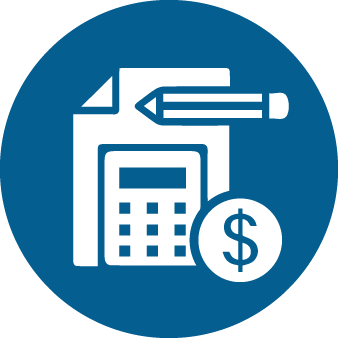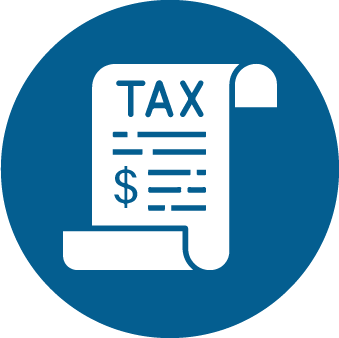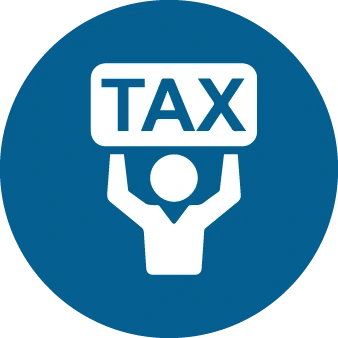Choosing the right NJ accountant is key for a small business's success. Owners often wonder, "what type of accountant is best for small business?" The answer depends on the business's unique needs. They should look for someone who can handle tax compliance, financial planning, and bookkeeping.
This article will explain the different types of accountants. It will cover their important roles and how to pick the best one for your business.
Key Takeaways
- Identifying the right small business accountant is essential for financial success.
- Different types of accountants offer diverse expertise tailored to small business needs.
- The best accountant for small business should understand industry-specific challenges.
- Financial planning and compliance are key roles of a small business accountant.
- Understanding the qualifications and specializations helps in making the right choice.
Understanding the Role of an Accountant for Small Businesses
An accountant for small businesses is very important. They make detailed financial statements. These include profit and loss reports, cash flow statements, and balance sheets.
These documents help check if the business is financially healthy. They give a clear picture of the business's financial state.
A small business financial advisor does more than just numbers. They give strategic advice based on financial data. This helps business owners make smart choices.
They also help with tax planning and understanding IRS tax forms and publications, ensuring the business follows tax laws and pays the correct amount. This can save a lot of money for small businesses.
Accountants help with budgeting and forecasting too. They look at past financial trends. This helps business owners set realistic budgets and goals.
This advice can greatly impact the business's future. It helps them grow and succeed in the long run.
Not sure what QuickBooks can do? Here are the QuickBooks basic functions every small business owner should know.
Types of Accountants Available for Small Businesses
Knowing the different types of accountants can help a small business manage its finances better. A small business accounting firm can offer many services to fit specific needs. The most common types are Certified Public Accountants (CPAs), Enrolled Agents (EAs), and tax-focused accountants.
1. Financial Accountant
- Focus: Prepares financial statements, balance sheets, income statements.
- Works for: Companies, helping them meet reporting requirements.
2. Management Accountant (or Cost Accountant)
- Focus: Internal financial analysis to help businesses make decisions.
- Involves: Budgeting, performance evaluation, cost control.
3. Tax Accountant
- Focus: Prepares and files taxes, advises on tax strategy and compliance.
- Specialty: Personal, corporate, and international tax law.
4. Auditor
- Focus: Examines financial records to ensure accuracy and compliance.
- Types:
- Internal Auditor: Works within a company.
- External Auditor: Works for an outside firm (often CPA firms).
5. Forensic Accountant
- Focus: Investigates financial crimes, fraud, and disputes.
- Often works with: Law enforcement or legal teams.
6. Chartered Accountant (CA) or Certified Public Accountant (CPA)
- Focus: High-level accounting and strategic advisory.
- Credentials: Requires rigorous exams and certifications.
- Often involved in: Audits, tax planning, consulting.
7. Government Accountant
- Focus: Manages public funds, ensures compliance with laws.
- Works for: Government agencies (e.g., IRS, state, local governments).
8. Project Accountant
- Focus: Tracks financials for specific projects.
- Used in: Construction, engineering, and consulting industries.
9. Fiduciary Accountant
- Focus: Manages accounts related to estates, trusts, and legal matters.
10. Environmental Accountant (Emerging Field)
- Focus: Evaluates the financial impact of environmental practices and sustainability.
What Type of Accountant is Best for Small Business?
Choosing the right accountant is key for small businesses. Their needs can change a lot. Things like industry, how much money they make, and special accounting needs are important.
It's important to pick an accountant who fits your business well. This ensures good financial management and follows the rules.
Considering the Specific Needs of Small Businesses
Small businesses need accounting that fits them. New companies might focus on keeping their finances in order. Older companies might look at growing and saving on taxes.
Knowing what your business needs helps you find the right accountant. Look for someone who knows about small business bookkeeping. This helps you make a good choice.
Specializations in Accounting: What's Best for You?
Accounting specializations can really help small businesses. Here are some specializations that might help your business:
Choosing the right accountant can really help your business. It makes your business run better and keeps it financially stable.
Specialization | Description | Best For |
| Tax Accounting | Specializes in tax planning, deductions, and compliance. | All small businesses needing tax strategy, preparation, and filing. |
| Financial Accounting | Prepares financial statements and ensures accurate recordkeeping. | Businesses needing formal reporting, especially for loans or compliance. |
| Management Accounting | Provides budgeting, forecasting, and internal financial insights. | Growing businesses that need strategic planning and decision-making tools. |
| Bookkeeping | Manages daily transactions, invoices, and account reconciliation. | Essential for all small businesses to maintain clean financial records. |
| Forensic Accounting | Investigates fraud, financial misconduct, or disputes. | Businesses facing legal issues, fraud suspicion, or partner disputes. |
| Auditing | Reviews financial records for accuracy and compliance. | Needed if requested by banks, investors, or for internal financial reviews. |
Benefits of Hiring a Small Business Tax Accountant
Hiring a small business tax accountant offers many benefits. They know how to deal with tax laws, making sure you follow them. They also help you find opportunities like the property tax deduction in NJ to reduce your liability.
Having a tax accountant all year is better than just at tax time. They give advice on taxes all year, helping you stay ready for tax time. They also help you use new tax rules to your advantage.
Another great thing is getting advice that fits your business.Having a tax accountant all year is better than just at tax time, especially when keeping track of things like what is the due date for payment of tax. This advice helps your business grow and stay stable by estimating outcomes such as how much is $250,000 after tax in NJ.
If you're dealing with IRS debt or penalties, consider our tax relief attorney near you to explore settlement options in New Jersey.
In short, getting a tax accountant helps manage costs, reduces stress, and improves financial decisions. It's a smart choice for your business's long-term success.
The Importance of Small Business Bookkeeping Services
Bookkeeping is key for a small business's financial health, and following proper record retention guidelines ensures compliance. It helps in making smart decisions and tracking progress. It also lets owners understand their cash flow and prepare for taxes.
Learn more about bookkeeping services in Clifton NJ for reliable, local support that keeps your finances accurate.
How Bookkeeping Supports Effective Financial Management
Good bookkeeping is the base for managing finances well. It helps small businesses:
- Keep an eye on income and expenses as they happen.
- Get ready for taxes and follow the rules.
- Make accurate financial reports for others.
- See where money is going and find ways to grow.
Bookkeeping services let entrepreneurs focus on their main work. They ensure the financial side is accurate and help track benefits like when to receive NJ ANCHOR tax relief check.
Choosing Between In-House and Outsourced Bookkeeping
Small businesses must decide between keeping bookkeeping in-house or outsourcing it. Each choice has its own good and bad points:
In-House Bookkeeping
- Direct control over financial data.
- Easy to talk and work together.
- Costs more because of salaries and benefits.
- Needs constant training and software updates.
Outsourced Bookkeeping
- Get expert help.
- Can save money compared to hiring staff.
- Less control over financial tasks.
- Risk of data security if not handled right.
The choice between in-house and outsourced bookkeeping depends on the business's needs. Using bookkeeping software can help manage finances well. This way, small businesses can handle their money without needing a full-time bookkeeper.
Finding the Best Accountant for Small Business Growth
Finding the right accountant is key for small business growth. Business owners should look for certain qualities and be informed on time-sensitive matters like when can I expect my NJ rebate check. First, industry experience is vital. An accountant who knows small business challenges can offer great advice and solutions.
Good communication skills are also important. A great accountant should make complex financial ideas easy to understand. This helps business owners make smart decisions while accessing programs like the NJ property tax relief fund. It's important to have open communication for a good working relationship.
Being proactive is also important. An accountant should not just fix problems but also look ahead. They should suggest ways to avoid future issues. This forward-thinking helps build a strong foundation for growth, especially when understanding who is eligible for the NJ property tax relief credit.
Studies show that great accounting support leads to business success. For example, a small manufacturing firm boosted its profits with the right accountant. This accountant found ways to save money and manage cash flow better. These stories show how important the right accountant is for financial planning.
| Quality | Importance | Impact on Growth |
| Industry Experience | Understanding specific challenges, like what are the taxes in Clifton NJ | Informed strategies for success |
| Communication Skills | Simplifying financial concepts | Empowered decision-making |
| Proactive Approach | Anticipating challenges | Preventing future issues |
Finding the perfect accountant is a big step for small businesses. Focusing on these qualities can lead to real growth and success.
Considerations for Small Business Financial Planning
Small business financial planning is key to success. Working with a small business financial advisor can greatly improve your financial strategies. Budgeting is essential for managing resources, tracking spending, and planning for investments.
Forecasting is also critical for predicting financial trends. A skilled advisor can help analyze market conditions, leading to better decisions. This ensures your business stays on track with its goals.
Choosing how to invest in assets, people, or technology is important. A financial advisor can guide you on the best investments for growth. This ensures your business grows sustainably while exploring advanced tax strategies, such as how to stop paying property tax in NJ.
Setting financial goals is a thoughtful process. Goals should match your business’s aspirations and factor in state benefits such as how much ANCHOR tax relief NJ. A trusted advisor helps create financial plans that align with your company's mission.
Plan wisely with a retirement planner NJ who understands your long-term goals.
| Financial Planning Aspect | Importance | Role of Small Business Financial Advisor |
| Budgeting | Controls spending and allocation of resources | Assists in creating a realistic budget based on historical data |
| Forecasting | Anticipates trends and market shifts | Provides expertise in market analysis and projections |
| Capital Allocation | Invests wisely for growth and sustainability | Guides in identifying the best investment opportunities |
| Goal Setting | Aligns financial strategies with business objectives | Helps articulate measurable and achievable goals |
How to Select a Small Business Accounting Firm
Find a tax accountant in Clifton NJ — the right firm can make all the difference for your business’s financial health. Start by checking the firm's credentials. Look at the team's education, certifications, and experience. A good firm will share this info and show they know their stuff.
Specialties matter too. Some firms are great at tax, others at auditing or consulting. Know what your business needs to find the right fit. Hearing from other clients can also give you a good idea of a firm's quality.
Interviewing firms is a must. It lets you see if you and the firm are a good match. Talk about what you expect and make sure your values align.
It's also important to understand how they charge. Some charge by the hour, others by a flat fee or retainer. Make sure you know the costs upfront to avoid surprises. This keeps your relationship with the firm strong.
Choosing the right accounting firm is about more than just qualifications. It's about finding someone who understands your business and communicates well. By doing your research, you can find a partner that supports your financial goals.
Find trusted accounting firms in NJ that offer personalized, local CPA support in Clifton and beyond.
Conclusion
Choosing the right accountant for your small business is key to financial success. This article highlights the importance of knowing your needs and the different accounting specializations. It's not just about finding someone good at financial reports. You also need someone skilled in tax and strategic planning.
Working with a good accountant can open up new growth opportunities. Business owners who manage their finances well, with expert help, are set for success. The right accountant helps navigate financial challenges, ensuring your business stays compliant and innovative.
Small business owners should look for an accountant who understands options like what is ANCHOR tax relief NJ, and their specific goals and challenges. By considering these points, they can make smart choices that lead to a bright future for their business.
FAQ
What type of accountant is best for small business?
The right accountant for small businesses depends on their needs. Certified Public Accountants (CPAs) are great for complex tax issues and audits. Enrolled Agents (EAs) focus on taxes. For simple bookkeeping and financial tasks, a small business accounting firm might be enough.
How can a small business tax accountant help?
A tax accountant helps with complex tax laws and finding deductions.They help you avoid surprises like the penalty for late payment of taxes in NJ, and know how to pay off a tax lien in NJ if necessary. They also offer tax planning advice all year, not just during tax season.
What are the benefits of hiring small business bookkeeping services?
Bookkeeping services keep your finances accurate, helping you make smart decisions. They also track your performance and prepare for audits. Outsourcing bookkeeping saves money and brings professional help without the need for a full-time employee.
How should I choose a small business accounting firm?
Look at their credentials, specialties, and what clients say. Talk to them to see how they communicate and work with clients. Make sure their fees fit your budget and their values match yours.
Why is financial planning important for small businesses?
Financial planning is key for budgeting and answering questions like do you get NJ exit tax back, forecasting, and managing money. It helps set and reach financial goals. Working with an accountant or advisor can offer valuable insights for growth and sustainability.
How do I know if I need an accountant for my small business?
If you're overwhelmed by finances or struggle with taxes, an accountant can help.They offer services that improve your financial health and help navigate issues like how long can NJ collect back taxes.
What qualities should I look for in a small business accountant?
Look for experience, good communication, and a proactive mindset. A good accountant manages your finances and advises on growth.
Can small businesses benefit from using accounting software?
Yes, accounting software automates tasks, simplifies taxes, and offers reports. It helps track expenses and revenues in real-time, making financial management easier.
Related Articles
Services provided for you
Bookkeeping Services in Clifton, NJ
We serve a range of industries and customers, in an organized, friendly, and reliable way.
Business Tax Services
We are in a position to identify tax planning shots that reduce both your current and future tax liabilities.
Individual Tax Services
We gauge our worth by the personal and business successes of our clients and industries.
Payroll Services
For small and large corporations, payroll systems, highly qualified payroll experts support our services. Our primary objective is to provide customized services and highly favorable pricing for you.
Non-Profit Organization Services
Precision Accounting Intl can assist you set up and maintain your non-profit organizations nontaxable standing by handling all the authority reportage for you.
Part-Time CFO Services
If you"re ready enough to be in this role. Our Part-Time CFO Service Package provides you with a knowledgeable financial manager who will work with you to help guide the progress of your business.











